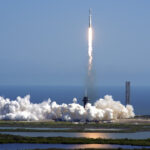Just a few weeks ago, workers from the Lebanese Civil Defense in the small southern village of Derdghaiya had to borrow ambulances from nearby towns for rescue missions. However, with the Israeli military escalating its bombardment of southern Lebanon, resources in the country’s health sector became scarce, making emergency vehicles harder to access for the Civil Defense, the country’s emergency medical service.
On September 17, Israeli intelligence initiated a series of bombings using pagers and walkie-talkies across Lebanon, causing devastation in public spaces and leaving first responders scrambling. In the aftermath, Civil Defense workers in Derdghaiya resorted to using vegetable carts to transport the wounded.
Bachir Nakhal, a volunteer based in Beirut, had previously helped raise funds for new emergency medical kits in the Tyre region, including Derdghaiya. Following the bombings, Nakhal pledged to collect funds to purchase an ambulance for the village. Through social media outreach and coordination efforts, Nakhal successfully arranged for the delivery of a new first-responder van to Derdghaiya, bringing relief to the local Civil Defense branch.
However, the joy was short-lived as an Israeli airstrike on October 9 targeted the Civil Defense center in Derdghaiya, resulting in the deaths of five first responders, including the regional director. The newly acquired ambulance was destroyed, adding to the toll of the attack on the village.
In the face of such tragedies, Nakhal condemned the deliberate targeting of emergency services by Israel, equating it to ethnic cleansing tactics aimed at rendering regions unlivable. The destruction of critical infrastructure and the loss of lives among first responders have raised concerns about potential war crimes.
The United Nations has also denounced the attacks on health care workers and facilities, emphasizing that such actions violate international humanitarian law and endanger both aid workers and vulnerable populations. The targeting of emergency services in Lebanon reflects a disturbing trend of violence that undermines humanitarian principles and hinders essential services.
Amidst the chaos and destruction, the solidarity and collaboration among various emergency response groups have emerged as a beacon of hope. Nakhal highlighted the unity and shared purpose that characterized the joint efforts of first responders in the aftermath of the attacks, underscoring the importance of collective action in times of crisis.
As the conflict continues to unfold in the region, the resilience and dedication of individuals like Nakhal and the Civil Defense volunteers serve as a testament to their unwavering sense of duty in the face of adversity.
First responders suffered injuries from navigating through mine fields, cluster munitions, and inhaling white phosphorus, a banned substance under international law that emits thick, toxic smoke. Can you rewrite this sentence?
Source link






